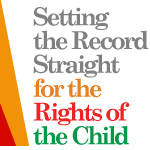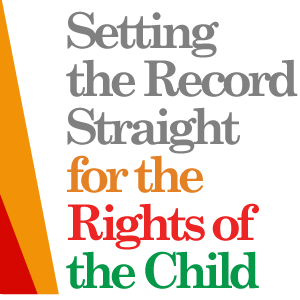The Project
Rights in Records by Design is an Australian Research Council funded Discovery Project investigating the design of systems to support the recordkeeping rights of people who experience out-of-home Care. It brings together archival and recordkeeping, social work and early childhood education researchers at Monash University with colleagues at the Collaborative Research Centre in Australian History (CRCAH) at Federation University Australia to take up the challenge of re-imagining recordkeeping and archival systems in support of responsive and accountable child-centred out-of-home care and as an enabler of historical justice and reconciliation.
Through our research, we aim to develop a blueprint for better recordkeeping systems for out-of-home Care. These systems would enable children and young people in Care to have a greater say in their records, and Care-leavers to have greater control over the ongoing management, access, and use of their records. We call this design Lifelong Living Archives for Childhood Out-of-home Care.
The funding is provided through an Australian Research Council (ARC) Discovery Grant DP17170100198 – Rights in Records by Design. The Chief Investigators on this project are Associate Professor Joanne Evans (Monash University), Associate Professor Jacqueline Wilson (Federation University), Professor Susan McKemmish (Monash University), Assoc. Professor Philip Mendes (Monash University), Professor. Keir Reeves (Federation University), and Dr Jane Bone (Monash University).
Associate Professor Joanne Evans’s involvement is also funded through a separate grant; the ARC Future Fellowship FT140100073 – Connecting the Disconnected: Co-Designing Inclusive Archival and Recordkeeping Systems.
The project has a number of investigative streams:
Records of Care
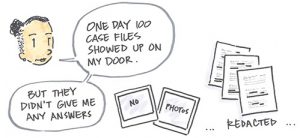 This involves discussions with Care-leavers about the records of their time in out-of-home Care. We are interested in identifying the different types of records; their format, form, and structure; their purpose; and the kinds of systems from which they come. We are not concerned with the specific details of any documents, but we are interested in views about which records are important, relevant, and useful, as well as which are unimportant, unhelpful, and/or inaccurate. We are also interested in thoughts about what is missing and should be included and what could be changed.
This involves discussions with Care-leavers about the records of their time in out-of-home Care. We are interested in identifying the different types of records; their format, form, and structure; their purpose; and the kinds of systems from which they come. We are not concerned with the specific details of any documents, but we are interested in views about which records are important, relevant, and useful, as well as which are unimportant, unhelpful, and/or inaccurate. We are also interested in thoughts about what is missing and should be included and what could be changed.
Child Centred Design
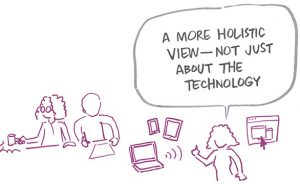
This phase of the project is concerned with gaining an understanding of the design of person-centred innovations that have emerged in the sector over recent years. It involves discussions with professionals who have worked as members of design, development, or implementation teams for person-oriented systems in the provision of out-of-home Care and/or for access to records of past Care experiences. This will inform the conceptualisation and design of Lifelong Living Archives as a complex, participatory information ecology. This study involves discussion about design, development, and implementation experiences to learn out about project design goals and compromises; barriers and insights; and the scope, affordances, and constraints of the application developed.
Co-Design Workshops
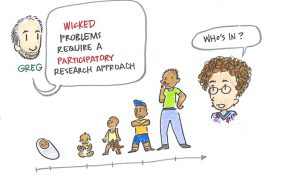 In designing the Lifelong Living Archives we are building a rich, in-depth picture of the lifelong recordkeeping needs of children and young people in Care. We need to understand the ways in which they, as well as care givers, case workers, teachers, health professionals, communities, and families will contribute to and interact with their records. An in-depth design of this type is best achieved through a co-design process. With co-design, all stakeholders come together in various combinations to present and discuss ideas of how a Lifelong Living Archives should work. It is through the views, understanding, and experience of all system stakeholders that a comprehensive design can be achieved.
In designing the Lifelong Living Archives we are building a rich, in-depth picture of the lifelong recordkeeping needs of children and young people in Care. We need to understand the ways in which they, as well as care givers, case workers, teachers, health professionals, communities, and families will contribute to and interact with their records. An in-depth design of this type is best achieved through a co-design process. With co-design, all stakeholders come together in various combinations to present and discuss ideas of how a Lifelong Living Archives should work. It is through the views, understanding, and experience of all system stakeholders that a comprehensive design can be achieved.
We are conducting a number of co-design workshops, after which we will build a proof-of-concept Lifelong Living Archives, and then evaluate this prototype. We expect to hold between 6 to 12 workshops over 2018/19.
Values, and Principles, and Rights
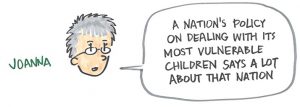 There is repeated evidence that whole childhoods spent in care went undocumented, with some survivors never even issued with a birth certificate. In order to unpack why making and keeping personal records about children of the state is never core business, a historical perspective is needed from which we can discern values and principles, even if the means of their identification is through examples of their violation.The issues with recordkeeping in out-of-home-Care, are, in fact, symptomatic of a constellation of deeper problems that relate to the political and social purpose and function of the welfare. Similarly, an education perspective (and, in particular, innovative thinking in Early Childhood Education) informs the project by upholding the rights of the child in terms of wellbeing and social justice, recognising holistic and alternative approaches to pedagogy and learning, and considering the ethics of researching with young children. In the out-of-home Care context, studies of recordkeeping literacy are vital to ensure meaningful participation across stakeholder communities in the formation, management and use of the Lifelong Living Archive. This is the first project in the world to explore this concept in the out-of-home Care context as a key to facilitating a child centred care model.
There is repeated evidence that whole childhoods spent in care went undocumented, with some survivors never even issued with a birth certificate. In order to unpack why making and keeping personal records about children of the state is never core business, a historical perspective is needed from which we can discern values and principles, even if the means of their identification is through examples of their violation.The issues with recordkeeping in out-of-home-Care, are, in fact, symptomatic of a constellation of deeper problems that relate to the political and social purpose and function of the welfare. Similarly, an education perspective (and, in particular, innovative thinking in Early Childhood Education) informs the project by upholding the rights of the child in terms of wellbeing and social justice, recognising holistic and alternative approaches to pedagogy and learning, and considering the ethics of researching with young children. In the out-of-home Care context, studies of recordkeeping literacy are vital to ensure meaningful participation across stakeholder communities in the formation, management and use of the Lifelong Living Archive. This is the first project in the world to explore this concept in the out-of-home Care context as a key to facilitating a child centred care model.
One output from this work will be a robust Rights Charter – a statement of rights that that declares individual Identity, Memory, and Accountability rights and maps them to specific recordkeeping rights in Participation; Access; Privacy and Safe Recordkeeping; and Proactive Disclosure. To this effect, the projectis developing a draft Charter for Rights in Records, drawing on a variety of sources including philosophy of the child, historical justice values and principles, human rights statements; existing charters of children’s rights; legal instruments; policy and practice; Care-leaver, support services, and advocate experiences; and community expectations.
Recordkeeping Principles Survey
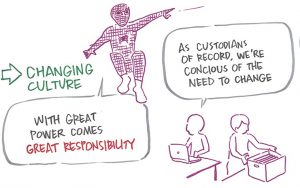
This phase of the project is concerned with the recordkeeping principles recommended by the Australian Government’s Royal Commission into Institutional Responses to Child Sexual Abuse (RCIRCSA) and the Records Access Principles and Guidelines developed in 2015 as part of the DSS’s suite of Find & Connect Services and Projects.
The purpose of this part of the research is to capture the views of recordkeeping and other professionals of capacities to implement these principles in the out of home care sector. We would like to build an evidence base on how these principles are being applied, any barriers to their adoption, and the issues that surface when trying to do so. The study involves an anonymous survey, reflecting on respondents’ roles and that of their organisation or clients in relation to the principles. We plan to repeat this survey on an annual basis to chart capacities to implement childhood safe recordkeeping principles in the out of home care sector.
Text Analysis of Royal Commission Report
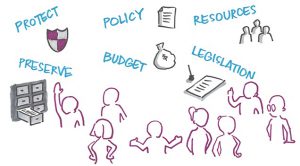 This study concerns the use of machine learning techniques to analyse the complete RCIRCSA report. The report runs to tens of thousands of pages in 17 volumes and includes 409 recommendations. While volume 8, Recordkeeping and information sharing, examines the records, recordkeeping and information sharing of institutions that care for or provide services to children, there are many mentions of records and recordkeeping (and related concepts such as: files, registers, correspondence, evidence, memory, oversight, accountability etc.) throughout the whole report. We are interested in identifying all of these references and linking them to specific issues and recommendations located in volume 8.
This study concerns the use of machine learning techniques to analyse the complete RCIRCSA report. The report runs to tens of thousands of pages in 17 volumes and includes 409 recommendations. While volume 8, Recordkeeping and information sharing, examines the records, recordkeeping and information sharing of institutions that care for or provide services to children, there are many mentions of records and recordkeeping (and related concepts such as: files, registers, correspondence, evidence, memory, oversight, accountability etc.) throughout the whole report. We are interested in identifying all of these references and linking them to specific issues and recommendations located in volume 8.
